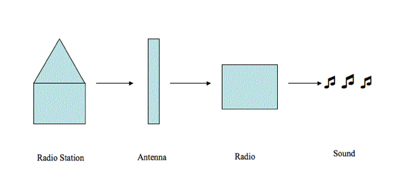
Suffering is a response to mental and/or physical pain. It may also just be the way people respond for no particular reason when they get up in the morning. From depression to rejection and backache, our lives are filled with stark reminders of the challenges of being alive. Pain is an inevitable part of this human existence. But does suffering have to be the inevitable response? In this column, I ask: what is the source of suffering? And why does it matter that we know this?
Understanding the source: When pain occurs, we know it because the brain registers it. The knee-jerk response is: "numb it, dumb it or kill it". Whether it is aspirin for physical pain, cognitive therapy for depression or anti-anxiety medications for our fears, we turn the volume of pain down. The pain is still there-we just cannot "hear" it. As a result, we continue to suffer or endure the pain. For many, even when there is no detectable pain, suffering occurs as part of living.
But what if we understood the source of suffering? What if, rather than submitting to continuous automatic suffering, we could stop suffering at its source and choose another response apart from continued suffering? What if, rather than turning the volume down, we actually switched to a different station? What would we have to change in order to do this?
In the medical community, our current thinking is that suffering emanates from the human brain. i.e. The brain is the origin of suffering. Suffering is considered to be either an automatic response to pain or a random consequence of being alive. We imagine that all forms of suffering come from this mass of gray and white matter inhabiting our skulls. But is it possible that this is not the case?
What if the brain was not the origin of suffering but the receiver and transmitter of it? What if those signals of suffering were in the air all the time? What if suffering was a choice and not a given?
The Brain as Receiver and Transmitter of Suffering: If the brain were a receiver and transmitter of suffering, then that would imply that suffering was coming from somewhere else. But is this idea even plausible? Is there any more tangible example of this in everyday life? I think that there is. Consider, for example, how a radio works.
Radios are receivers and transmitters of electromagnetic energy called radio waves. They receive this energy from radio stations when the antenna picks them up, and the radio then transmits these waves after processing and amplifying them to whoever is listening. If you were in a room with radio waves but no radio, they would still be there but you would not hear them.
Similarly, before suffering reaches the brain via its corresponding thought waves, we cannot see or detect it. However, once the brain, like the radio, picks them up and processes them, we can identify the suffering. We don't think of suffering as coming from anywhere else because the first time we encounter it is when the brain tells us that we are suffering. The diagram below illustrates the similarities between the radio and the brain:

This explains how we might not see suffering before it reaches us. It may be outside our frequency range until the brain picks this up. So it is plausible that suffering is represented by waves that enter the brain and become known as suffering once the brain accepts and processes them.
But the next question that arises is: if radio waves come from a radio station, where do thought waves that carry suffering come from?
The Source of Thought-Waves: Outside of us, there are billions of people who are talking, interacting, moving and creating sounds and thoughts. This process has occurred ever since the world began. There is thus a huge body of energy that has built up ever since the world began. It is everywhere: around your head, in the house next door, in the neighboring city, the neighboring state and the neighboring country. The brains of all living beings are connected because our brains are open to the world through our sense organs.
Some refer to this giant pool as "universal consciousness", others call it "God", and yet others may call it "the result of the Big Bang". It does not matter what we call it. This consciousness energy is all around us all of the time, and it is beyond our perception until it strikes our sense organs and gets interpreted by the brain.
Consciousness energy contains different frequencies of emotion: happiness, sadness, anger, and disgust being some examples. In the case of feelings, suffering then constitutes those emotional frequencies that cause or result from pain. It is carried in those thought waves that carry negative emotions.
If this were in fact the case, why should you care? Why would there be any use to thinking of the brain as a receiver and transmitter of thought-waves rather than a source?
Why does it make a difference? If thought waves are like radio waves, then presumably, suffering would be accepted by a channel much like a radio channel. If our brains are like radios, we would presumably also be able to tune in and tune out certain channels of emotion. Furthermore, we may have more advanced ways to process information much like newer technology akin to FM instead of AM and digital instead of analog.
In the upcoming weeks, we will examine several implications of what I will now call "external source theory" of the brain. Some of the questions that arise are: Can you tune into specific thought wave frequencies just as the radio tunes into radio wave frequencies? And do we also have to deal with static and interference the way that radios might have to? What constitutes static in terms of thought waves? And how can we decrease this? How can we reduce our own suffering in simple, practical ways?